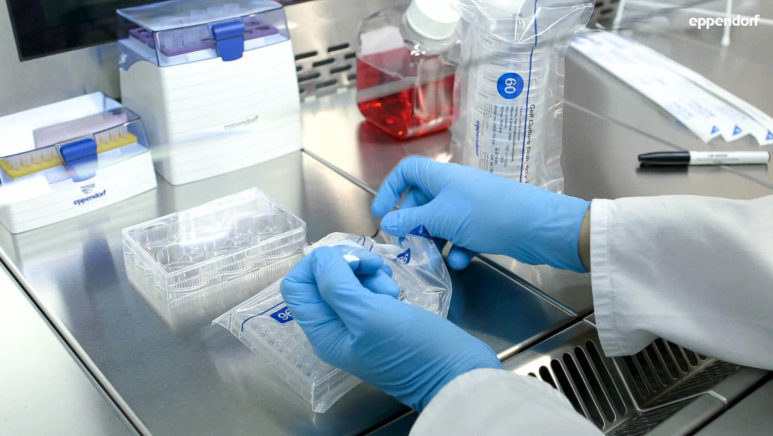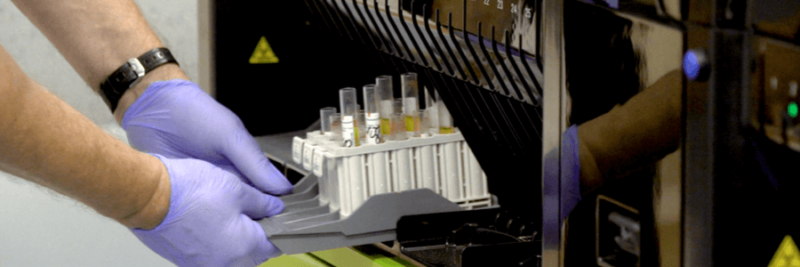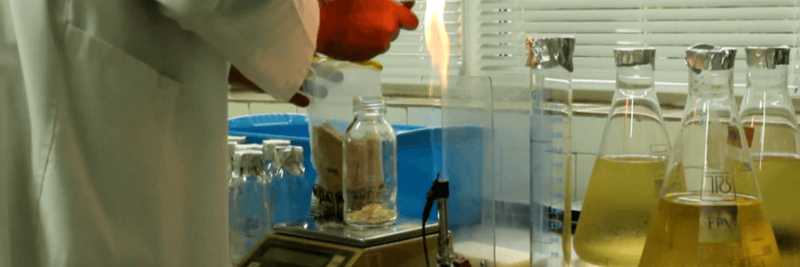Buy One Get One FREE on Everything. Use Code BOGO1
![]()
![]()


A medical-grade CBD oil is full-spectrum hemp extract with a high concentration of cannabidiol (CBD). It also contains terpenes and micronutrients that are good for your health. In most cases, medical-grade CBD oils have MCT oil as the carrier oil. MCT stands for medium-chain triglyceride. MCT coconut oil is one of the best base oils for hemp CBD oils.
In the CBD market, you can find both flavored and unflavored CBD oils. Those who buy premium CBD oils for their potential health benefits should go for:
You should strictly avoid using CBD oils with artificial flavors. Especially if you are looking to use it for medicinal purposes.


High-quality CBD oils are naturally rich in cannabidiol. Medical grade CBD oils refer to oils with other minor cannabinoids found in the hemp plant. This article will discuss more about the cannabinoid-rich extract in detail later.
The most important ingredient in CBD oil is ‘cannabidiol’. Most companies offer CBD oils containing:
in a 30 ml bottle. The CBD concentration may be lower or higher depending on the formulation of the company.
The serving size is typically 1 ml for medical grade CBD oils. The dropper attached to the top of the CBD oils usually measures 1-ml for that purpose.
If a 30-ml bottle contains 250 mg of CBD, a dropper-full of oil (which is one milliliter) will contain:
250/30 = 8.33 mg of CBD
A 500-mg CBD oil will have a CBD concentration of 16.66 milligrams of cannabidiol per serving size.
If you buy a bigger CBD oil bottle (say that of 60-ml size), the amount of CBD the bottle contains will also need to be higher. It means that 500 mg of CBD in a 60-ml bottle size has a CBD concentration of:
500/60 = 8.33 mg of CBD per serving size (or per 1-ml drop)
The total amount of CBD in a bottle is mentioned on the product label. If your CBD oil bottle doesn’t mention this information, look for another one. Never buy a CBD oil bottle from a company which is not honest and transparent.
Consumers should be aware that the CBD industry is unregulated. The US FDA (Food and Drug Administration) or other government agencies do not monitor it. Hence, each company follows its own path. The companies do not follow standardized practices of manufacturing CBD oils. The information companies put out for consumers may not exactly be reliable. Hence, the buyers should always check for the ‘Certificate of Analysis’ issued by an independent laboratory. This report shares the exact formulation of the CBD oil. You can use it to glean information like:
Sometimes, companies mention CBD strength in percentage, such as:
A 20% CBD oil means that 1000 mg of hemp CBD oil will contain 200 mg of cannabidiol. In this case, the weight of oil in milligrams matters. The volume (measured in milliliters) of the CBD oil is not considered.
Due to the lack of regulations, different manufacturers and cannabis product testing facilities use different ways to calculate CBD strength. You may want to ask the customer care experts of the company to guide you. They can help you determine:
It is always recommended that first-time users should start with a low-strength CBD oil or tincture. They can gradually increase their CBD dosage until they achieve the desired effects. People suffering from chronic or acute pain may need a higher CBD dose. Those who are taking medical grade CBD oil to treat anxiety or insomnia should start with a low CBD dose. They may use stronger CBD oils in a few months under medical supervision.


Cannabidiol is believed to have hundreds of therapeutic benefits. Cannabis (the plant from which CBD is extracted) has been used for treating ailments for thousands of years. Cannabis is also used to get high. Because of its high abuse potential, it is considered illegal in many places.
The compound that makes cannabis intoxicating is called ‘delta-9-tetrahydrocannabinol’ or 9-THC. Cannabis plants with more than 0.3% THC concentration are known as ‘marijuana’ in legal terms. Marijuana is a controlled substance.
Cannabis plants with 0.3% THC or less are known as ‘industrial hemp’. Hemp extracts are now legal throughout the US under 2018 Farm Bill.
CBD or cannabidiol is the second-most abundant compound found in hemp or marijuana plants. It is an isomer of THC but its properties are quite different from THC. First, it is non-psychoactive. Second, it has hordes of therapeutic benefits.
The World Health Organization (WHO) confirms that cannabidiol is safe. Its report states:
Cannabidiol does not have any abuse potential. It is well-tolerated by humans, even in large doses.
The World Anti-Doping Agency’s (WADA) 2019 Prohibited List has also removed cannabidiol from its list. The USADA did likewise. This step indicates that WADA and USADA do not consider CBD harmful for athletes and sportspersons.
Best CBD-rich hemp extracts which are considered safe for everyone and anyone are also known as medical grade CBD oils.
WTPHemp’s CBD oils and tinctures are all of medical-grade quality. They are tested by ProVerde – one of the best ISO-17025 certified laboratories in the US for testing cannabis products. You can see the certificate or test results for different products on the website.
To make sure that the buyers get the premium grade CBD oil, WTPHemp uses:
New federal laws that allow farming of industrial hemp has ushered in an era of ‘green rush’ in Colorado. The farmers have to register as a ‘hemp grower’ with the Colorado Department of Agriculture (CDA). The Colorado Department of Public Health and Environment regulates:
of hemp products.
The agencies take care that these registered hemp farms only grow plants that contain less than 0.3% THC. They also make sure that plants meant for oral consumption are labeled correctly.
WTPHemp only trusts American-grown organic hemp. CBD oils derived from imported hemp cannot match the quality of CBD oils extracted from American hemp. Overseas, hemp farming rules and regulations less stringent. It is difficult to determine if the hemp from Europe or Asia has the same standard as the US-grown hemp. In the United States, hemp farming guidelines are quite strict. Registered hemp farmers need to abide by them. They need to use 100% organic farming practices.
Licensed farms that supply hemp to WTPHemp take pride in the high quality of their crops.
From the medical and pharmaceutical perspective, CBD is the most interesting cannabinoid. The FDA has already approved a pure CBD drug called ‘Epidiolex’ to treat epilepsy. Scientific studies suggest that CBD might be good for treating:
Two popular methods of extracting cannabidiol from hemp plants are:
Solvent-based extraction (ethanol extraction) of CBD is less expensive. It is simpler and requires less power. It cannot extract CBD isolates as it is not ‘tunable’ (cannot be focused on one particular compound. It extracts all the compounds from whole hemp plants, including:
If ethanol extraction is not done properly, residual solvents in CBD oils can be harmful to the body.
CO2 extraction is a popular extraction process used in the food industry. It is also the best method to extract top-quality cannabis oils. It’s safer, cheaper, and greener for large commercial operations. It also yields a consistent product which is more palatable.
The ‘supercritical’ here refers to a state in which carbon-dioxide is:
heated above 31.3 degree Celsius, and
kept at the pressure of 1,071 psi or higher.
At these temperature and pressure levels, CO2 contains properties of both a gash and a liquid. It can pass through porous solids. It also becomes an ideal solvent that can dissolve materials.
The best part of using supercritical CO2 as a solvent is its ‘tunability’. It can extract maximum CBD from the hemp. It also does not let the unwanted compounds (such as chlorophyll) contaminate the resulting CBD oil.
Many CBD manufacturers use CO2 extraction process. But users should note that subcritical and supercritical CO2 extraction methods are different. They yield very different cannabis products. Supercritical systems produce CBD extract with the consistency of peanut butter. It can be filtered by a process called winterization to yield CBD oils (by removing fats and waxes). The subcritical CO2 extraction process yields hemp extract with a consistency like molasses. It also preserves other cannabinoids (such as THC) which might not be desirable.
The supercritical CBD oil extraction also kills microorganisms (such as bacteria and mold). Hence, the resulting CBD oil is of medical grade. It can be easily used by people:
The medical-grade CBD oil will always be THC-free (or have less than 0.3% THC). In case you intend to use CBD oil for medical purposes, it is best to buy a zero-THC CBD oil or tincture. Patients on regular medication must also consult their doctors before using the CBD oil.
Cannabidiol may interfere with the processing of drugs. Some of the common drugs available in the market, such as:
interact with CBD.
Doctors with expertise in CBD treatments can advise whether you should take CBD or not in your condition. CBD experts can also guide you on how to switch to CBD without affecting your health negatively.


Best medical grade CBD oils available in the market are always full-spectrum or broad-spectrum products. The full-spectrum CBD oils are extracted from whole hemp plants. Besides cannabidiol, they also contain other beneficial compounds found in the hemp plants, such as:
This cannabinoid is non-psychoactive. Its potential health benefits include:
This is also non-psychoactive. It is believed to:
The last-mentioned benefit (if confirmed) may help in treating diseases like:
This cannabinoid interacts with the endocannabinoid system (ECS) by inhibiting COX-2 enzyme. These enzymes cause inflammation when the body is infected or gets injured. Blocking COX-2 enzymes can relieve pain and inflammation. A study found that it also reduced the serotonin levels in mice. This may mean that CBDA might help in fighting nausea and vomiting induced by chemotherapy (or cancer treatments).
It’s a psychoactive compound. It causes a ‘high’ when one consumes high-THC cannabis (or marijuana). Though it does offer many health benefits, it has several risks attached to it. Its psychoactive effects last only a few hours but it can be detected in drug tests for much longer. It can be stored in body fat and organs for up to four weeks. Hair samples for drug testing can yield positive results for THC for up to 90 days. If you are in a profession where you need to clear the drug tests, THC may cause you to lose your job.
It is also highly addictive. It may also increase the risk of developing:
Hence, in medical-grade CBD oils, THC is restricted to the 0.3% limit. In such trace amounts, THC is unlikely to cause any of its damaging effects.
Together, all these cannabinoids increase the efficacy of the CBD oil. This is known as ‘entourage effect’. Hence, full-spectrum CBD oils are preferred over CBD isolate tinctures.
Terpenes also add value to CBD oils. They are under-researched right now. The terpene profile of different cannabis strains may be the reason behind the difference in their aromas and effects. Some studies show that terpenes reduce the intoxicating effects of THC.
Some companies re-terpene their products (or add terpenes back to their product). WTPHemp prefers to retain the terpenes found naturally in hemp plants to offer better value to its customers.
![]()
![]()
![]()
![]()
![]()
![]()
We The People Hemp was founded in 2018 to bring quality CBD products and information to the global marketplace.
![]()
![]()